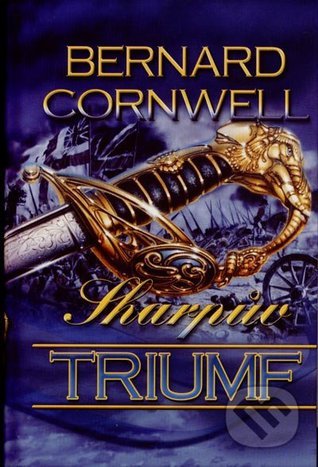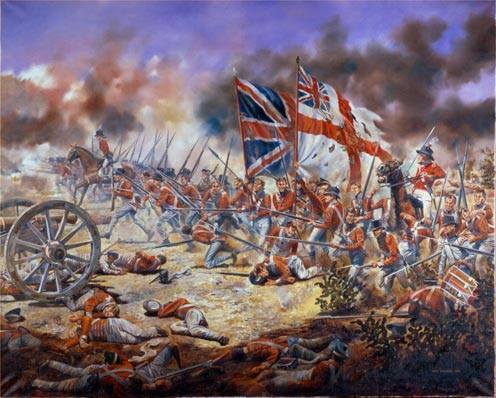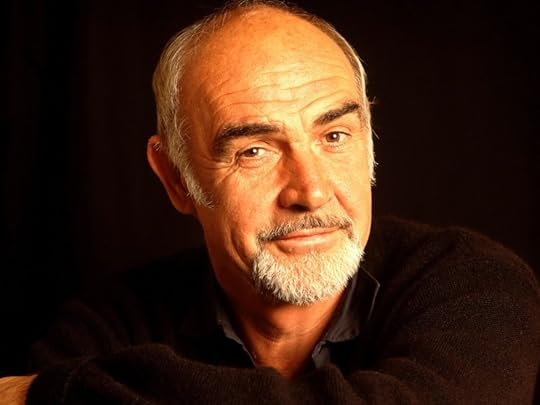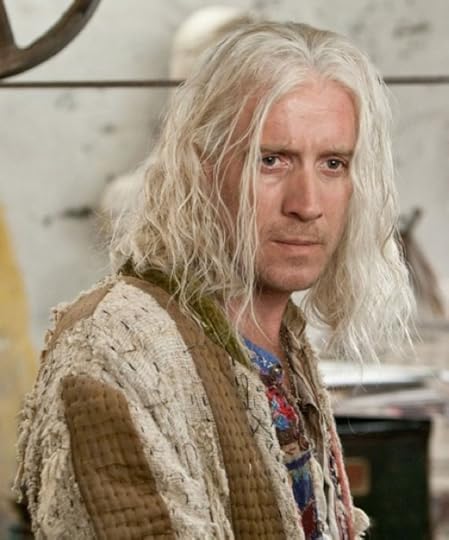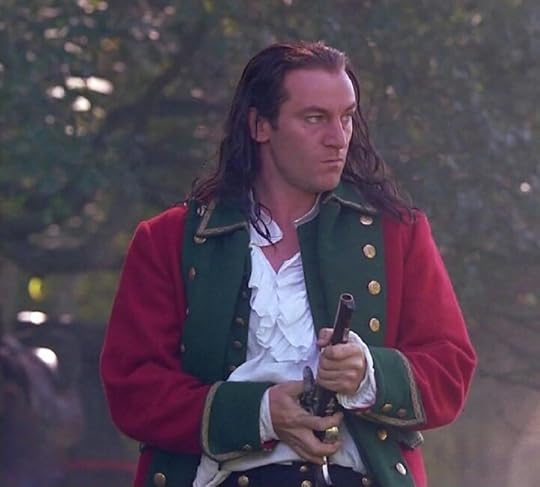A few years back I read most of Bernard Cornwell's action-packed serial adventure series on the Napoleonic Wars. I read through to what felt like a fairly satisfactory end and then I quit for a few years. Recently I noticed I still had about a half dozen books to go, and so when I came across Sharpe's Triumph, the second book in the series and the first I hadn't read yet, I figured it was time to get reacquainted with an old friend. It's so good to be back with Ol' Sharpie!
Richard Sharpe was an orphan from the London workhouses. He's a tough fighter, who escapes life-threatening danger time and again through wit, bravery and brawn. Mostly he wins by kicking ass, sometimes literally. However, at the start of the series, he's a lowly private in the army, who's never seen action. Reading about how he became who he eventually became was answered in book one to a small extent, but Cornwell went a step farther with it in book two.
Having seen the tv show starring Sean Bean based on these books, I knew how lowly Sgt Sharpe became an officer. That is a very big deal, because someone born to such a low station in life as Sharpe would not generally rise into the officer ranks. That's just not how the British army worked back then. It took an incredibly stupid brave act of daring to rise from the rank and file to become an officer. You basically had to step to the very edge of suicide and survive to make it happen. Sharpe's feat in this regard is detailed within this book and it differs slightly from how it was portrayed on the tv show. Nice to finally get that cleared up.
Book one felt quite strange to me, probably because it is set in India and most all of the others are set in Europe, usually Spain or France. Book two is also set in India, but it definitely feels more like a standard Sharpe book. Perhaps that's because there are huge set-piece battles led by Arthur Wellesley, aka the Duke of Wellington. It also includes plot mainstays like a damsel in distress, a conniving compatriot with a personal vendetta, and a pompous and/or cruel aristocratic officer or two, all of whom manage to make Sharpe's life hell.
I haven't read these books in order, which is perhaps wrong of me since they follow a chronological order. But then again, Cornwell didn't write these in order, so if he's not going to lead by example, how am I suppose to follow? Damn it, I demand authorial leadership! I kid. I'm honestly just happy he wrote these at all. It's been an absolute pleasure reading about Sharpe's adventures.
